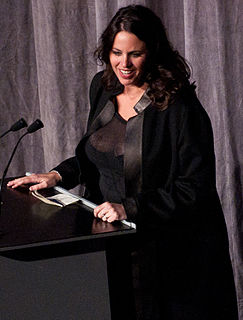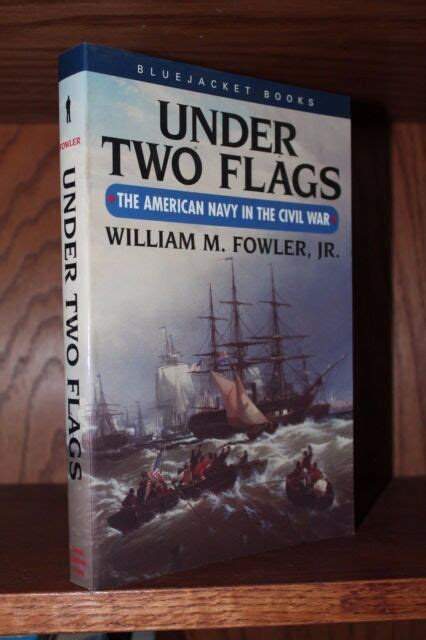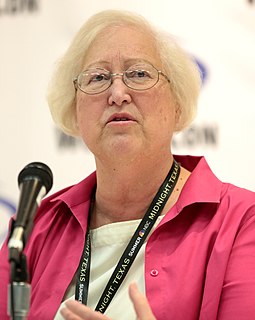Top 269 Victorian Quotes & Sayings - Page 5
Explore popular Victorian quotes.
Last updated on December 19, 2024.
What smells strongly of crap to one generation - Victorian penny dreadfuls, the music of the Archies, the Lone Ranger radio show, blaxploitation films of the seventies - so often becomes a fruitful source of inspiration, veneration, and study for those to come, while certified Great and Worthy Art molders and fades on its storage rack, giving off an increasingly powerful whiff of naphthalene.
I don't like the definition 'war correspondent'. It is history, not journalism, that has condemned the Middle East to war. I think 'war correspondent' smells a bit, reeks of false romanticism: it has too much of the whiff of Victorian reporters who would view battles from hilltops in the company of ladies, immune to suffering, only occasionally glancing towards the distant pop-pop of cannon fire.
Eyeing the traffic circulating the lobby hung with bad art. Big invasive stuff unloaded on Stanley Bard in exchange for rent. The hotel is an energetic, desperate haven for scores of gifted hustling children from every rung of the ladder. Guitar bums and stoned-out beauties in Victorian dresses. Junkie poets, playwrights, broke-down filmmakers, and French actors. Everybody passing through here is somebody, if not in the outside world.
What if all those strange and unexplainable bends in history were the result of supernatural interference? At which point I asked myself, what's the weirdest most eccentric historical phenomenon of them all? Answer:the Great British Empire. Clearly, one tiny little island could only conquer half the known world with supernatural aid. Those absurd Victorian manners and ridiculous fashions were obviously dictated by vampires. And, without a doubt, the British army regimental system functions on werewolf pack dynamics.
The only acceptable way to solve ecological problems is if you can persuade people to have fewer children. In the Victorian times, there were families of 15 children. Someone like Edward Lear, he was the last of 21 children. And so what we have to think about is offering people the alternative choice. And in the West, that's what's happening. The birth rate has been dropping steadily and still is. I'm wanting human beings to be better off so they don't view children as an insurance for the future.
I heard "romantic comedy about the invention of the vibrator in Victorian England," and I was like, "You have got to be kidding me. Yes, I want to do that." And I had a bunch of small kids, and I didn't want something that was so impossibly difficult, a "broccoli movie." But I wanted something that meant something to me, so I just kind of said, "Let's go, jump in!" It took a long time to get Hysteria made, but it was really fun.
There are many things in this world that are an outrage, to be sure, but death at our current life expectancy doesn’t strike me as one of them. Maybe I sound like some Victorian who felt that forty years ought to be enough for any man, but one of the marks of a life well lived has to be reaching a state of finally getting it, of not needing more, and of being able to sign off with something approaching peace of mind.
I try to find a style that matches the book. In the Baroque Cycle, I got infected with the prose style of the late 17th and early 18th centuries, which is my favorite era. It's recent enough that it is easy to read - easier than Elizabethan English - but it's pre-Victorian and so doesn't have the pomposity that is often a problem with 19th-century English prose. It is earthy and direct and frequently hilarious.
Women are human beings, and human beings are a very mixed lot. I've always been against the idea that women were Victorian angels, that they could do no wrong. I've always thought it was horseshit and does nobody any good. Remember, Lizzie Borden got off largely because the cultural agenda had convinced people that women were morally superior to men, so Lizzie Borden was "incapable" of taking the ax and giving her mother 40 whacks.
True to their history, the English are very domineering and have manipulated it in different ways. I wouldn't say that there was an original, but there is a lot of expurgation in some of the Victorian translations, and there's a lot of additional salacious nonsense in some of them, too. I also like the early French one, much-derided for being fanciful but which is actually very elegantly done. It's very big, very capacious.
The greatest act of love was to make a tape for someone. It was the only way we could share music and it was also a way of advertising yourself. Selection, order, the lettering you used for the track list, how much technical detail you went into, whether or not you added artwork or offered only artwork and no track list at all, these choices were as codified as a Victorian bouquet.
The [sexual harassment] situation has gotten so out of hand that, in 1993, in one of the first British cases, a plumber was fired for continuing to use the traditional term "ballcock" for the toilet flotation unit, instead of the new politically correct term, sanitized of sexual suggestiveness. This is insane. We are back to the Victorian era, when table legs had to be draped lest they put the thought of ladies' legs into someone's dirty mind.
When I was thirteen, I had a nervous breakdown, and I was put into this grown-up mental hospital with all these 50-, 60-year-old men and women. This big, Victorian mental house. There were like five boys in there, all my age, looked after by this woman who was 22 or 23. And it was like "Empire of the Sun" meets "One Flew Over the Cuckoo's Nest"-type of arrangement where you've got this young boy overcoming and becoming heroic in the face of this awful place.
I was every Londoner's stereotypical idea of a brash, vulgar American. When I got here, it turned out that London was the Wild West, and New York was like London at the height of the Victorian era, in which everyone was far more obsessed with table manners and status-climbing than they are in London. In London, everyone was just crawling over this blizzard of cocaine. Here, if you have more than a glass of wine with your meal, people refer you to Alcoholics Anonymous.
[My muse] likes to inhabit tea leaves, sunlight filtered through bamboo, melancholy clouds over the Devon coastline, a weedy railroad crossing in the Southern States, bubblegum pop from the sixties, torch songs from the forties, undersea caves where B-movie octopi grapple with men in loincloths, sacred groves of pink anime dryads, Victorian fairy paintings executed by gentlemen in lunatic asylums and so on.
The great crime which the moneyed classes and promoters of industry committed in the palmy Victorian days was the condemning of the workers to ugliness, ugliness, ugliness: meanness and formless and ugly surroundings, ugly ideals, ugly religion, ugly hope, ugly love, ugly clothes, ugly furniture, ugly houses, ugly relationship between workers and employers. The human soul needs actual beauty more than bread.
The Jacksonian era is generally talked about in terms of individualism, and the development of free market capitalism, and Victorian prudery. It was shocking to find a parallel history to that - a bunch of Americans with very different priorities. I stumbled on to these people, and then became completely fixated on them. The question that drove me was: how did these reasonable people adopt these extremely unreasonable ideas?
In the nineteenth century, which was a dark and inflationary age in typography, man compositors were encouraged to stuff extra space between sentences. Generations of twentieth-century typists were then taught to do the same, by hitting the spacebar twice after every period. Your typing as well as your typesetting will benefit from unlearning this quaint Victorian habit.
The human race will disappear. Other races will appear and disappear in turn. The sky will become icy and void, pierced by the feeble light of half-dead stars. Which will also disappear. Everything will disappear. And what human beings do is just as free of sense as the free motion of elementary particles. Good, evil, morality, feelings? Pure 'Victorian fictions'. Only egotism exists.
...But I don't think I'm the only person who is tired of books and movies full of paper-doll characters you don't care about, who have no self-respect and no respect for anybody or any institution....And I don't want to sound preachy or Victorian, but I'm tired of amorality in fiction and in real life. Immorality is a fascinating human dilemma that creates suspense for the readers and tension for the characters, but where is the tension in an amoral situation? When people have no personal code, nothing is threatening and nothing is meaningful.
Well, this is a story about books." About books?" About accursed books, about a man who wrote them, about a character who broke out of the pages of anovel so that he could burn it, about a betrayal and a lost friendship. It's a story of love, of hatred, and of the dreams that live in the shadow of the wind." You talk like the jacket blurb of a Victorian novel, Daniel." That's probably because I work in a bookshop and I've seen too many. But this is a true story.
All the stories of the Bible that I know came to me first from my grandfather's lips... He would see stories in everything. He told stories very easily and very generously, so I loved him for that. He was a simple man, a Victorian; he was born in 1890-something. He saw no reason and had never seen any reason to question his Christian faith. His faith was strong and simple and that's it. And I, like his other grandchildren and the children in his parish, sheltered underneath it.
To her credit, Madam Walker discerned that black women wanted to conform to white Victorian models of beauty. She was aware of the double- sidedness of her products - helping black women appear more European in look, with straight hair - but she always maintained that she was simply selling products that promoted hair growth.
Tides of History provides a splendid prism through which we may view the wider world of Victorian science. . . . Historians of science will have cause to heap praise on this book, but so too will the non-specialists. The author's splendid writing style, at times appropriately Puckish, makes this work an accessible and enjoyable read.
In all times and in all places--in Constantinople, northwestern Zambia, Victorian England, Sparta, Arabia, . . . medieval France,Babylonia, . . . Carthage, Mahenjo-Daro, Patagonia, Kyushu, . . . Dresden--the time span between childhood and adulthood, however fleeting or prolonged, has been associated with the acquisition of virtue as it is differently defined in each society. A child may be good and morally obedient, but only in the process of arriving at womanhood or manhood does a human being become capable of virtue--that is, the qualities of mind and body that realize society's ideals.
A Grand Design we couldn't see because we were part of it. A Grand Design we only got occasional, fleeting glimpses of. A Grand Design involving the entire course of history and all of time and space that, for some unfathomable reason, chose to work out its designs with cats and croquet mallets and penwipers, to say nothing of the dog. And a hideous piece of Victorian artwork. And us.
I'd signed up not just for Christianity but the established Church of England. That has a particular history and I think we rather lost it in the 19th Century, we became so much part of empire and colonialism, the language of the Church Of England still reflects that Victorian time. As the 20th Century developed, not surprisingly people left the church and I can see the church's role in losing people.
Modernism really started with people getting infatuated with the idea of "it's the twentieth century, is this suitable for the twentieth century." This happened before the First World War and it wasn't just the soldiers. You can see it happening if you read the Bloomsbury biographies. It was a reaction to a great extent against Victorianism. There was so much that was repressive and stuffy. Victorian buildings were associated with it, and they were regarded as very ugly. Even when they weren't ugly, people made them ugly. They were painted hideously.
A village in a country which is taking pains to become altogether standardized and pure, which aspires to succeed Victorian England as the chief mediocrity of the world, is no longer merely provincial, no longer downy and restful in its leaf-shadowed ignorance. It is a force seeking to conquer the earth. Sure of itself, it bullies other civilizations, as a traveling salesman in a brown derby conquers the wisdom of China and tacks advertisements of cigarettes over arches for centuries dedicated to the sayings of Confucius.




























